Play Video
0:46
Alexei Navalny detained after arriving at airport on return to Russia – video
The Russian opposition politician Alexei Navalny has been detained at Moscow’s Sheremetyevo airport on his return from treatment abroad after a suspected poisoning attempt on his life by Russia’s FSB spy agency.
Navalny, whose investigations into corruption in Vladimir Putin’s inner circle have sparked protests and angered the country’s most powerful men, had vowed to return home despite signs the Kremlin was preparing to arrest him.
Police detained Navalny shortly after his flight from Berlin landed on Sunday evening. It was due to touch down at Moscow’s Vnukovo airport, where hundreds of supporters had gathered. The authorities closed the airport at the last minute, and diverted Navalny’s plane to Sheremetyevo, away from waiting media.
Navalny’s spokesperson, Kira Yarmysh, said the Kremlin was terrified of Navalny and of images showing large crowds wanting to greet him. “Until recently, it was impossible to believe they [the authorities] were so scared. But here’s the confirmation,” she tweeted.
After landing in Russia, Navalny and his wife left the plane before trundling in an airport bus with other passengers towards the terminal building. He said he was “very happy to be back”, adding: “This is the best day in the last five months. I’m home.” The criminal cases against him were all “fabricated”, he said, adding that justice and truth were on his side.
Police officers met Navalny at passport control and detained him. Navalny kissed his wife goodbye and gave her a hug. He then disappeared with the officers.
The Moscow department of Russia’s federal penitentiary service confirmed that Navalny had been arrested. The official cause was failure to appear at a parole hearing. He could face years behind bars if a suspended sentence he received in 2014 is amended to a prison term.
Earlier, hundreds of his supporters defied a ban on protests at Vnukovo airport to meet the returning dissident. Soon before his plane was due to land, “Omon” riot police entered the terminal. They arrested dozens of people, including Navalny’s brother, Oleg, and close aides. There were cries of “fascists” as the supporters were dragged off.
Navalny was in good spirits on the plane shortly before his arrest, telling journalists who flew with him from Berlin: “I am not afraid.” He said he was “extremely happy” to be returning to Russia after almost five months recuperating in Germany.
He joked that he was more concerned by the freezing winter conditions awaiting him in his home city than he was of the authorities. “What bad things could happen to me inside Russia?” he quipped. “I have every right to come back.”
Russian law enforcement had threatened to jail Navalny in an apparent effort to keep him in exile in Berlin, where he had been recuperating since August. Doctors at Berlin’s Charité clinic identified the poison used against him as a member of the novichok family, similar to the one used in the Salisbury attacks.
While in Berlin, Navalny participated in an investigation by the website Bellingcat into the attempt on his life, which exposed an FSB hit squad that had shadowed him around the country for years. Navalny personally elicited a confession from a member of the operation in a revelation seen as deeply embarrassing for the agency and for Putin, a former KGB officer and one-time head of the FSB. Putin, who never refers to Navalny by name, had dismissed the Bellingcat report as a “falsification”.
Since then, Russian investigators have increased the pressure on Navalny, who has built a political and investigative operation that has become one of the most vocal and effective critics of Putin and his entourage.
Quick guide What is novichok?
Show
Hide
Novichok refers to a group of nerve agents developed by the Soviet Union in the 1970s and 80s to elude international restrictions on chemical weapons. Like other nerve agents, they are organophosphate compounds, but the chemicals used to make them, and their final structures, are considered classified in the UK, the US and other countries.
The most potent of the novichok substances are considered to be more lethal than VX, the most deadly of the familiar nerve agents, which include sarin, tabun and soman.
Novichok agents work in a similar way, by massively over-stimulating muscles and glands. Treatment for novichok exposure would be the same as for other nerve agents, namely with atropine, diazepam and potentially drugs called oximes.
The chemical structures of novichok agents were made public in 2008 by Vil Mirzayanov, a former Russian scientist living in the US, but the structures have never been publicly confirmed. It is thought they can be made in different forms, including as a dust aerosol.
The novichoks are known as binary agents because they only become lethal after mixing two otherwise harmless components. According to Mirzayanov, they are 10 to 100 times more toxic than conventional nerve agents.
Photograph: Matt Cardy/Getty Images Europe
Was this helpful?
Thank you for your feedback.
Speaking to the independent channel TV Rain, the opposition activist Vladimir Kara-Murza said a “smart” regime would have ignored Navalny’s return. He described the Putin regime as “not clever” and said it had made strenuous efforts to ensure that Navalny stayed in exile.
Kara-Murza likened Putin’s behaviour to that of Yuri Andropov, the Soviet politburo leader and hardline KGB chief. Andropov deported high-profile critics to the west, including the writer Alexander Solzhenitsyn and human rights campaigner Vladimir Bukovsky.
Navalny had every right to return home despite the likelihood of his arrest, Kara-Murza said. “You can only be a Russian politician from within Russia. Outside you lose relevance.”
Moscow’s prison service said earlier this week it had orders to arrest Navalny for missing parole hearings during his convalescence, potentially converting a suspended sentence of three and a half years that expired in December into hard prison time.
And Russia’s investigative committee has opened a criminal inquiry into alleged embezzlement from his anti-corruption fund that could carry a decade-long sentence if brought to trial.
Navalny had explained his decision to come home by saying that he had “never considered the decision of whether to return or not”. “I survived,” he said in a video with more than 1.9m views on Instagram. “And now Putin, who gave the order for my murder, is screaming in his bunker and ordering his servants to do everything to keep me from returning. His servants are acting like they usually do: inventing new criminal cases against me.”
But he would return nonetheless, he said. “Russia is my country, Moscow is my city, I miss them.”
Russian law enforcement has repeatedly launched criminal investigations into Navalny over the past decade that have kept him in courtrooms or trapped at home on house arrest. His brother Oleg also served three and a half years in prison for the same embezzlement case for which Navalny was given a suspended sentence. He has said the prosecution was political. But authorities have so far avoided giving Navalny a long prison sentence, probably in order to avoid sparking a backlash.

































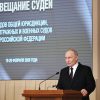
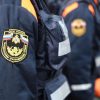
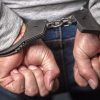
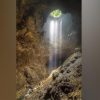
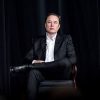

















Свежие комментарии